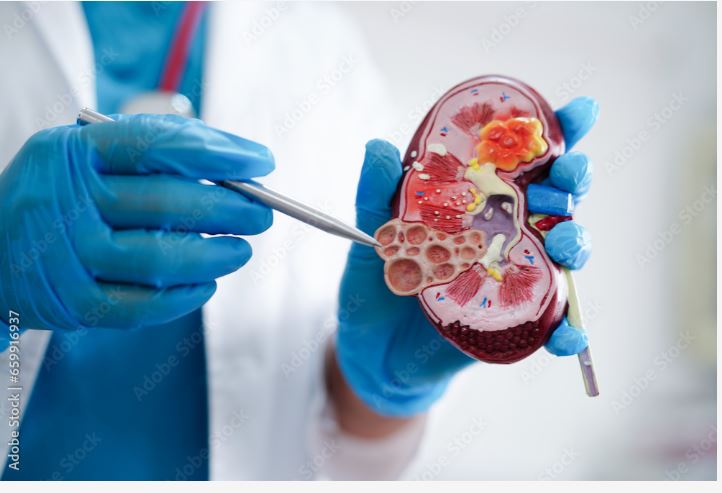Chronic Kidney Disease (CKD) is a silent epidemic affecting millions of people worldwide. What makes it particularly insidious is that it often progresses without symptoms until it reaches an advanced stage. Early detection is crucial for effective management and prevention of complications. Kidney function tests are vital in identifying CKD at its earliest stages. In this blog, we will explore the significance of these tests and how they can help in early detection.
Understanding Chronic Kidney Disease (CKD)
What is CKD?
CKD is when the kidneys lose their ability to filter blood effectively. It leads to the accumulation of waste products and fluid in the body.
Stages of CKD
CKD is classified into five stages, with Stage 1 being the mildest and Stage 5 being the most severe. Early detection occurs primarily at Stage 1 or 2.
Why Early Detection Matters
Preventing Progression – Identifying CKD in its early stages allows interventions to slow or prevent progression to more severe stages.
Reduce Complications – Early detection reduces the risk of complications, including cardiovascular disease and kidney failure.
Lifestyle Modifications – Patients diagnosed with early-stage CKD can make lifestyle changes to improve kidney health.
The Role of Kidney Function Tests
Glomerular Filtration Rate (GFR) – GFR measures how well the kidneys filter waste products from the blood. A GFR below 60 mL/min/1.73m² for three months or longer indicates CKD.
Serum Creatinine – Creatinine is a waste product produced by muscle metabolism. Elevated serum creatinine levels can indicate reduced kidney function.
Blood Urea Nitrogen (BUN) – BUN measures the amount of urea nitrogen in the blood. Elevated BUN levels can suggest impaired kidney function.
Urine Albumin-to-Creatinine Ratio (UACR) – UACR measures the amount of albumin (a type of protein) in the urine. Increased levels may indicate kidney damage.
Who Should Undergo Kidney Function Tests?
High-Risk Groups
Individuals at a higher risk of CKD, such as those with diabetes, hypertension, or a family history of kidney disease, should have regular kidney function tests.
Routine Screenings
Routine screenings can help detect CKD in its early stages, even without symptoms.
Frequency of Kidney Function Tests
Annually – People in high-risk groups should have kidney function tests annually to ensure early detection.
Biennially – For individuals not in high-risk groups, kidney function tests every two years are recommended.
Lifestyle Modifications for Kidney Health
Manage Blood Pressure – Controlling blood pressure is essential in preventing kidney damage. Medication and lifestyle changes may be necessary.
Control Blood Sugar – For those with diabetes, proper blood sugar management is crucial to prevent kidney damage.
Maintain a Healthy Diet –A diet low in salt and processed foods can help reduce the strain on the kidneys.
Stay Hydrated – Adequate hydration can help flush toxins from the body and promote kidney health.
The Importance of Regular Follow-Ups
Monitoring Progression – Regular follow-up appointments with healthcare providers are essential to monitor CKD progression and adjust treatment plans accordingly.
Medication Management – Medications may be prescribed to manage blood pressure, control blood sugar, or address other kidney health conditions.
Conclusion
Early detection of Chronic Kidney Disease is paramount in preventing its progression and reducing complications. Kidney function tests, including GFR, serum creatinine, BUN, and UACR, are valuable tools for identifying CKD at its earliest stages. Those at high risk, as well as the general population, should consider routine screenings. Lifestyle modifications and regular follow-ups with healthcare providers can help maintain kidney health and improve overall well-being. Don’t wait for symptoms to appear; prioritize kidney health through early detection and proactive management. Book the KFT test in Delhi with Redcliffe Labs for just Rs 349 and take proactive measures to save your kidneys and life.

